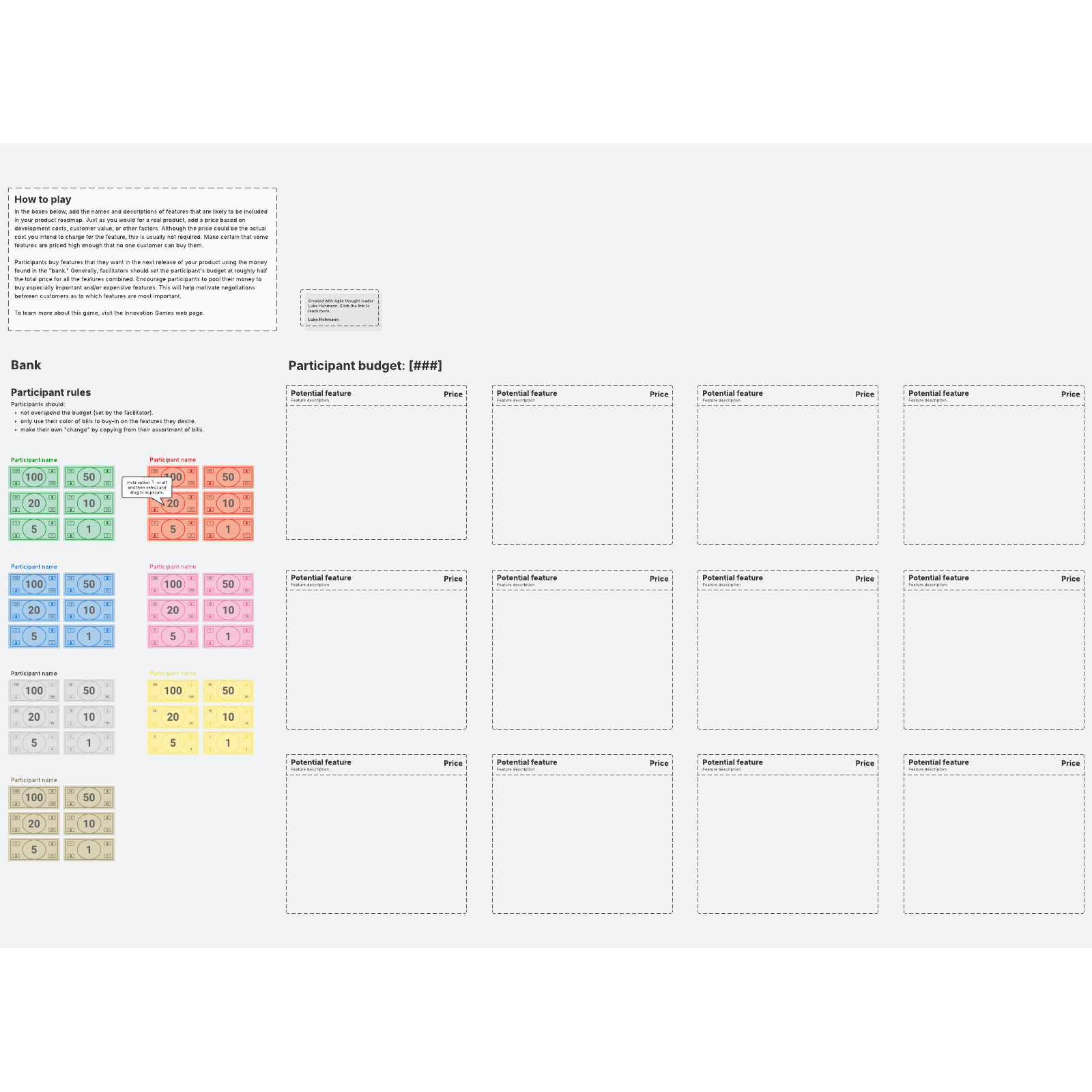Buy a feature
Buy-a-Feature is a game-based approach to prioritizing a product’s development. Using a mock economy, your product team can work directly with a group of customers or other stakeholders to learn which features they value most.
or continue with
By registering, you agree to our Terms of Service and you acknowledge that you have read and understand our Privacy Policy.

What is buy-a-feature?
Luke Hohmann developed buy-a-feature as one of his 12 Innovation Games that help teams understand what customers really want. This particular game helps a group prioritize what features to include when developing a product.
The game will include several potential features, each with a price tag that reflects how much time and resources it would take to develop. The players—your key stakeholders—use fake money to vote on which features they believe should be included—and they have to work together as many features cost too much for players to buy them on their own.
Benefits of the buy-a-feature template in Lucidspark
Because players can’t buy whatever features they want unilaterally, the players must discuss and haggle over what they want to buy. This prioritization activity helps the group focus on what really matters to customers: when players must put their thoughts into words to persuade the rest of the group, they are more likely to think through what will really matter to an end user.
When your group has finished playing, you will all have better insight into what features will bring the most value to your customers and are worthy uses of your time.
How to use the buy-a-feature template in Lucidspark
Before you gather your group, add the names and descriptions of features that you’re considering including into the template. Include a price for each feature that reflects its development costs relative to the other features.
Next, set your participants’ budget. Generally, the game works best if you create a total budget that is about half of the total price of all features combined, then divide that budget amongst the players.
After you’ve finished setting this up, it’s time to play. Let your participants discuss which features to pool their money on and which are not worth their limited funds. Lucidspark’s built-in timer can help you keep the discussion on track, and you can use sticky notes or the Note Panel to record your players’ thoughts about each feature. For more ways to guide your players, take a look at Lucidspark’s Facilitator Tools.
When you’ve finished playing, your group will have more insights into your customers’ needs and how to best spend your time. You’ll be ready to get to work.

Luke Hohmann
Author, Innovation Games



